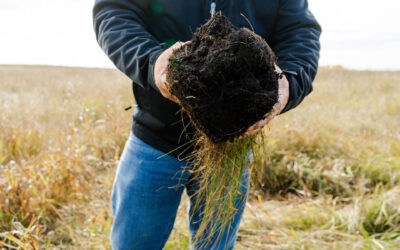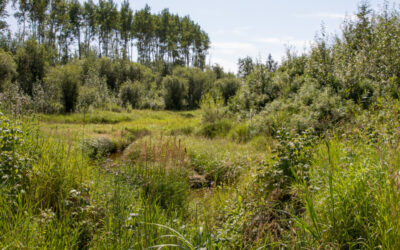Toronto, ON and Montréal, QC, December 12, 2022 — ALUS is pleased to welcome Mélanie Kfoury, founder and president of the Montréal-based strategy firm Melka Consulting, to the ALUS Board of Directors. Mélanie brings extensive expertise in innovative growth strategy, B2B marketing and sales, and stakeholder engagement to the organization.

Mélanie Kfoury
“Mélanie has worked with executives across diverse corporate sectors and has cultivated a wide network of innovative and influential leaders and decision makers,” says ALUS CEO, Bryan Gilvesy. “Her growth mindset, energy and talent for building strong partnerships will help support ALUS as it enters a new stage of growth and development.”
Ex-KPMG strategy and operations partner, Mélanie draws upon over twenty years of consulting experience working with corporate clients to redefine, refocus and reenergize their growth strategies. She also serves as an advisor for cleantech companies and is a member of the Camps Odyssée corporation.
“At this critical moment in our history, I feel compelled to lend my expertise to reducing the impacts of climate change and improving the environment for current and future generations,” says Mélanie. “I look forward to joining a principle-based organization like ALUS, who is committed to supporting grassroots communities in building environmental resilience at the local level.”
Mélanie joins Chip Pitfield, John Coyne, Paul Douglas and Mary Buhr on the ALUS Board of Directors.
About ALUS
ALUS (originally an acronym for Alternative Land Use Services) is a national charitable organization that provides expertise, resources, and direct financial support to 35 communities across 6 provinces where more than 1,400 farmers and ranchers establish and steward nature-based solutions on their land. These solutions deliver ecosystem services to help sustain agriculture and fight climate change and biodiversity loss for the benefit of communities and future generations. Projects such as enhanced wetlands, windbreaks, riparian buffer zones, wildlife habitats, adaptative agricultural practices and other impactful environmental solutions produce cleaner air, cleaner water, greater biodiversity, carbon sequestration, erosion control, flood and drought mitigation, pollinator and wildlife habitat, and other ecological services.



